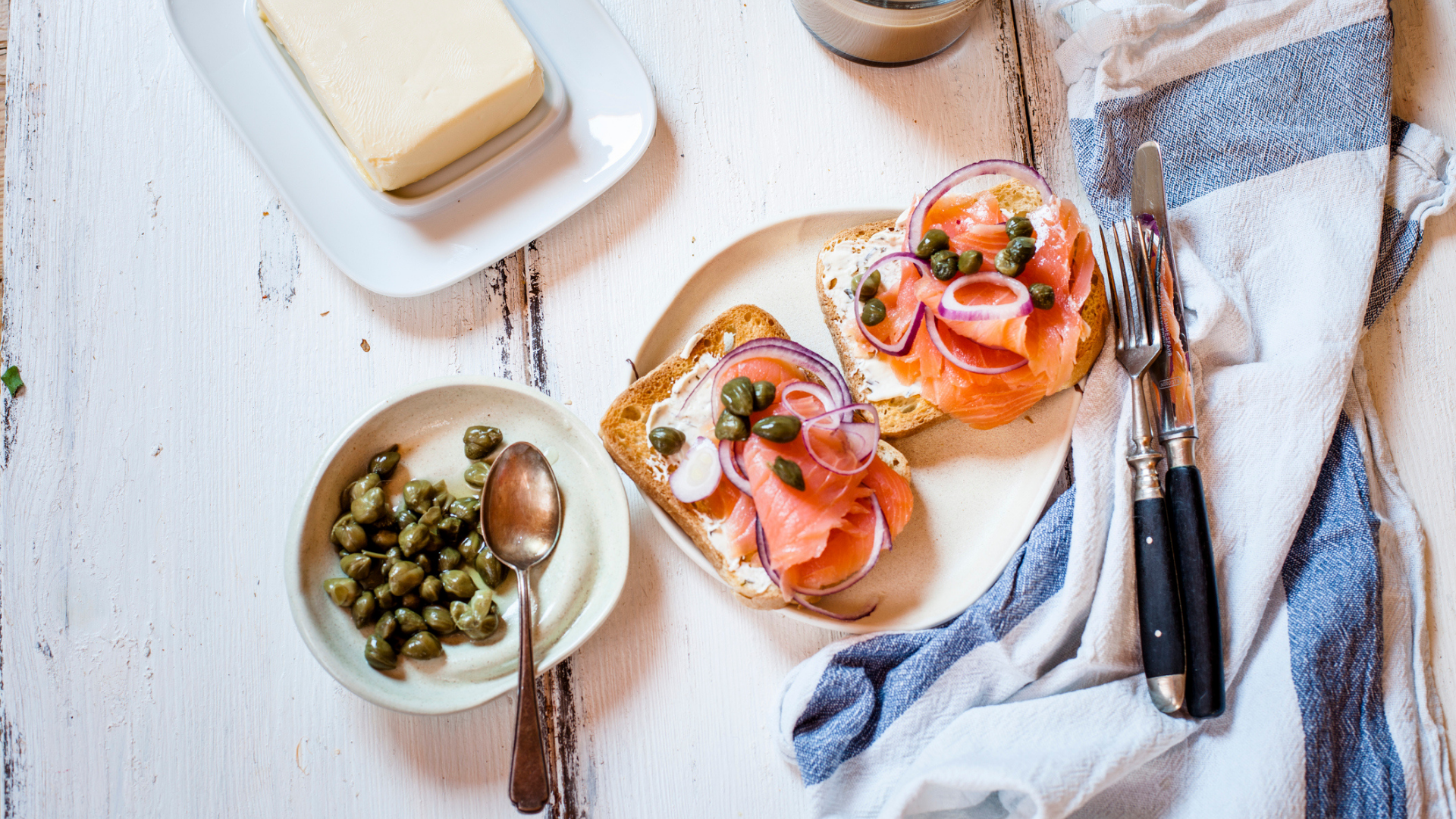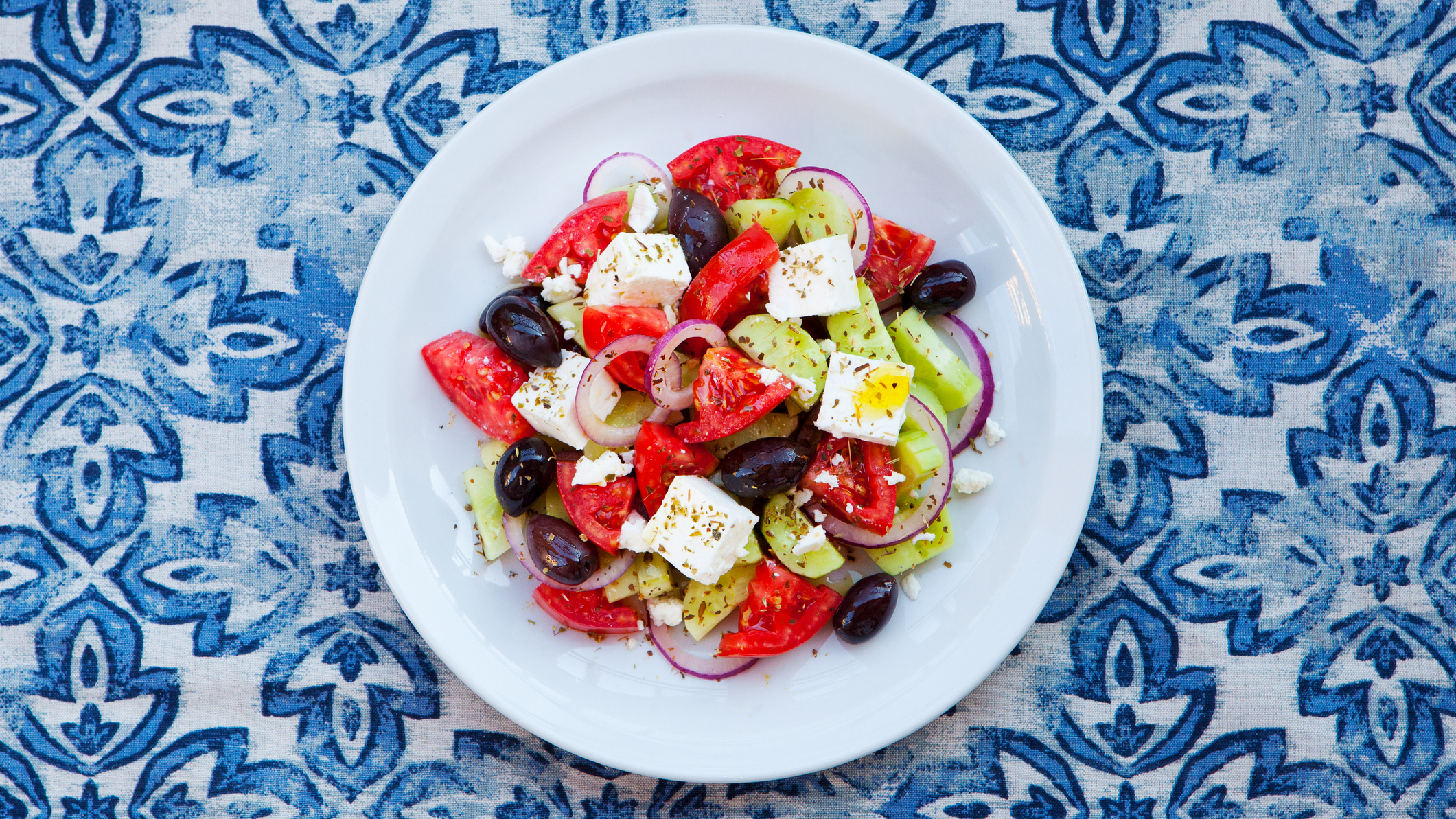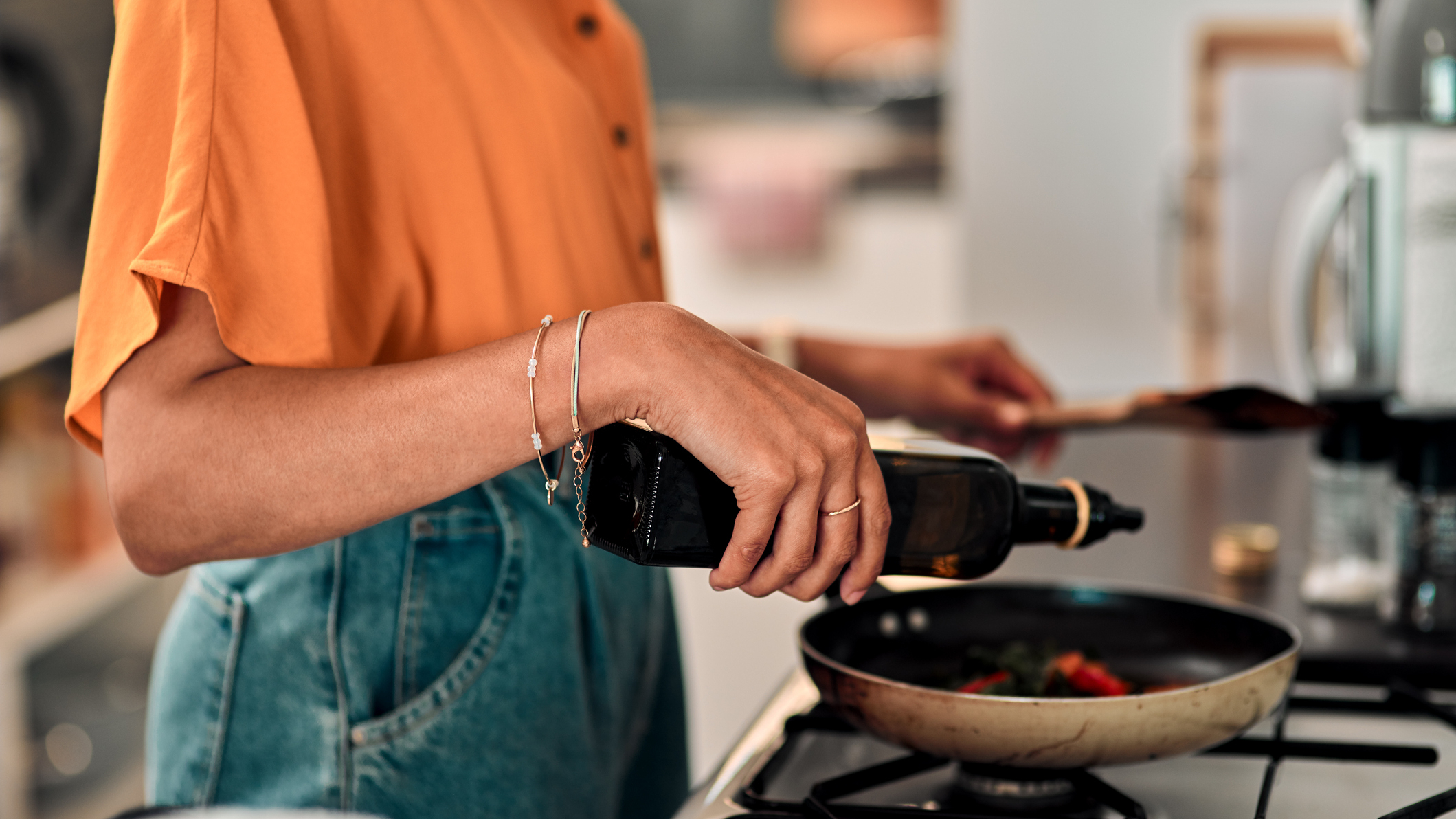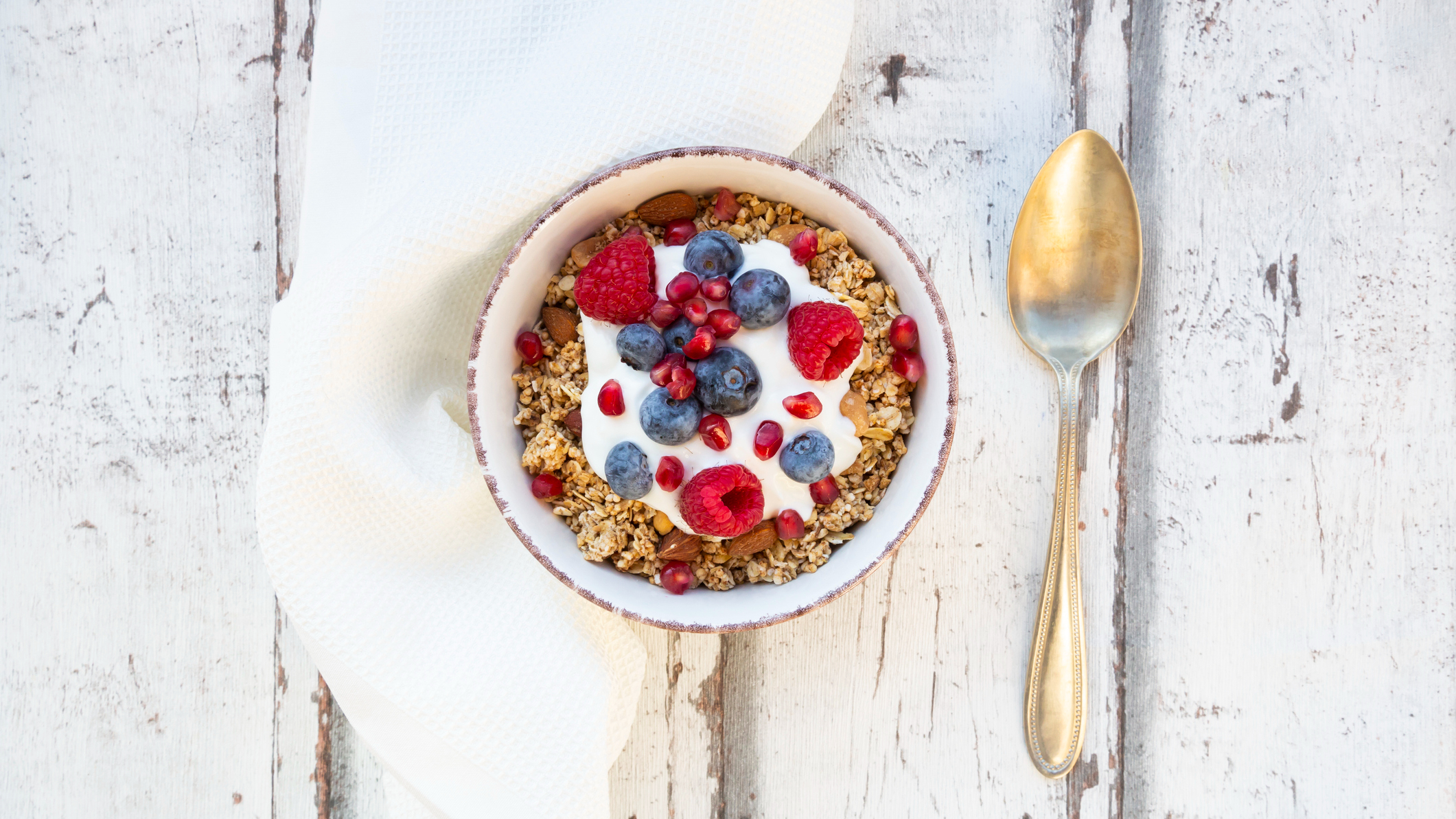Want to try the Mediterranean diet? Here's what to eat to boost your health
The Mediterranean diet comes with proven benefits to physical wellbeing—here's what to fill your plate with...


Unlike a host of other faddy eating regimes, the Mediterranean diet is one that has stood the test of time. It involves eating plenty of healthy fats and whole grains, as well fruit and vegetables. This means that the likes of smoked salmon, olive oil, tomatoes and nuts are just some of the delicious, nourishing items to make the shopping list.
But, while it may be a 'diet' by name, it isn't just about how to lose a stone in one month, but is also the basis for a lifestyle that will leave you feeling well for years to come. While healthy, sustainable fat loss may be the end result, this nutritious way of eating has plenty more going for it according to science—studies have shown that it can improve health in numerous ways.
The Mediterranean diet—what are the health benefits?

Science has frequently linked the Mediterranean diet to optimum physical wellbeing. Indeed, there's evidence it can boost brain function, is also beneficial for women going through the menopause and wards off certain types of cancer.
A study found that the eating regime could help protect against dementia. Our brains shrink by one to two percent each year, which results in a decreased ability to learn new things and retain memories. Researchers at the University of Edinburgh noted that eating a diet rich in oily fish, fruit and vegetables, and nuts, might help slow down this process.
Additionally, another study concluded that the Mediterranean diet could be "useful" for protecting bone density. This is particularly important for women over 50 who are at an increased risk of osteoporosis around the time the menopause begins, due to a decline in the hormone estrogen.
The research, presented to the Endocrine Society, found a higher bone and muscle mass in post-menopausal women who followed the eating regime, compared to women who did not. It's might also be worth looking into the benefits of protein powder, which could also help bone health, along with strength training.
And that's not all. Another study, by the World Cancer Research Fund, also discovered that women who eat a mostly Mediterranean diet have a 40 per cent reduced risk of oestrogen-receptor negative breast cancer.
Sign up for the woman&home newsletter
Sign up to our free daily email for the latest royal and entertainment news, interesting opinion, expert advice on styling and beauty trends, and no-nonsense guides to the health and wellness questions you want answered.
But what exactly is the Mediterranean diet?

As such, the Mediterranean diet is said to be one of the most nourishing in the world. It is a way of eating based on the traditional cuisines of Greece, Italy and other countries around the—you guessed it—Mediterranean Sea.
In their book, The Greek Diet (a form of the Mediterranean diet), the Greek chef and restaurateur Maria Loi and Olympic-level athlete turned health journalist Sarah Toland explain how to make the most of this nutritious way of eating. They were inspired by the ancient Greek philosophy of "everything in moderation" and suggest the diet could help promote healthy, sustainable weight loss—here's their best advice on how to fuel yourself right...
1. Enjoy Greek yoghurt
Full of calcium, protein and healthy bacteria, Greek yogurt has a versatile taste and texture. Add it to savory dishes as a dressing on salad, or consume with honey and fruit to satisfy your sweet tooth. "Some people drink sugary sodas or eat sweets to pick themselves up—I eat yogurt!', says Maria. "Our family ate a lot of tzatziki, a traditional Greek yogurt sauce made with cucumbers, olive oil, lemon juice, herbs and a touch of vinegar. They say that if you want your food to taste better, you eat tzatziki because the combination of yogurt and cucumber opens up your palette and enhances the flavor of food."
2. Fill up on fibrous fruit
"Despite what some fad diets say, no one ever got fat eating fruit," notes Maria. "While fruit contains sugar, it's a healthier sugar than what you find in any packaged, processed food. Fruit is a fantastic source of the kind of natural fibers shown to make us feel full while lowering our blood-sugar levels."
3. Rethink chicken and eggs
"Long-term and large-scale population studies suggest diets high in animal meat, including poultry, increase the risk of obesity," says Sarah. "That said, poultry still has a place and should be consumed the way the ancient Greeks did, eaten as a regular side or occasional main'. Try swapping chicken for eggs instead. "Using the latter as a protein source for breakfast, lunch and dinner will help you lose weight more quickly," she explains. Although, if you're wondering, this is the deal with veganism and the environment.
4. Snack on nuts
Nuts have an unfair reputation when it comes to weight loss. Most people think they should be avoided due to their high fat content, but Sarah says that's simply not the case. "They are nature's healthiest snack', she points out. 'We feel so strongly about eating nuts, in fact, that we believe if everyone swapped processed snacks for a handful of them then most of us would drop five pounds in a month's time."

5. Drizzle on olive oil
Studies have shown that by changing fats like butter for olive oil can help your body burn fat, curb your appetite, increase your metabolism and lead to weight loss. "Olive oil isn't just the healthiest oil, it is also the tastiest oil!," says Maria. "The question shouldn't be, 'what do you use olive oil for?'—it should be, 'what don't you use olive oil for?'"
6. Make seafood a staple
"Without a doubt, seafood is the healthiest animal protein you can eat," says Maria. "Not only does eating more fish and shellfish help improve the health of your heart, brain, skin, eyes, and muscles, along with boosting your memory, focus, and longevity, it contains essential fats our bodies require to burn fat and lose weight. When you have fresh seafood, you need to do very little to make a healthy, nutritious meal."
7. Beware coffee and tea
Drinking coffee and tea variations could be worse for weight loss than a slice of cake. 'Beware lattes, frappes, mochas, cappuccinos and chais," says Sarah. "These speciality drinks come packed with a lot of sugar."
8. Fuel up on beans
Beans should account for a large portion of your everyday diet. They will keep you feeling full after mealtimes and reduce cravings for refined carbohydrates, which could also help curb emotional eating. "When it comes to naturally occurring fiber, you need two types to help lose weight: soluble and insoluble fiber," says Maria. "No other single food has more of both of these types than beans."
9. Add in herbs and spices
The most important ingredients in your kitchen are often only relied upon to give a finishing flourish. "Stop thinking of herbs and spices as what you add to food, but as what you need in food to lose weight," says Maria. "Herbs and spices play an important role in fighting fat."
Ciara McGinley is a meditation practitioner and health journalist. She qualified as a meditation teacher with the British School of Meditation in 2020 and is the founder of Finding Quiet, a series of classes, workshops and retreats that combine meditation practices and mindfulness techniques to make mindful living realistic in an always-switched-on modern world. She is all about bettering that mind-body connection but believes wellness looks different to everyone.
Ciara is also the former Health Channel Editor at woman&home and has covered all things health and wellbeing for years, from fitness to sleep to relationships.
-
 Unforgettable date ideas to make a great first impression or rekindle romance
Unforgettable date ideas to make a great first impression or rekindle romanceForget the same old first date formula - these unforgettable date ideas will leave them thinking about you long after you go home
By Natalie Denton Published
-
 Butter yellow might be the colour of the season, but Amal Clooney is making me want to try sunshine shades
Butter yellow might be the colour of the season, but Amal Clooney is making me want to try sunshine shadesSpark some joy by adding some statement yellow pieces to your wardrobe just in time for summer
By Matilda Stanley Published